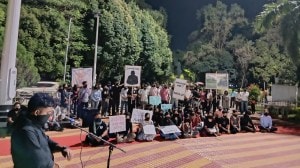Stay updated with the latest - Click here to follow us on Instagram
Past talaq cases recalled by SC
SC judgment refers to several cases and court rulings
 The Supreme Court of India
The Supreme Court of India
SC judgment refers to several cases and court rulings
Rashid Ahmad v. Anisa Khatun
Privy Council, 1905
Ghiyas-ud-din pronounced triple talaq in 1905, in the presence of witnesses but in the absence of Anita Khatun. She challenged the divorce since she had not been present and because, even after that, they cohabited for 15 years and had 5 children until Ghiyas-ud-din’s death. The Privy Council upheld the triple talaq.
Jiauddin Ahmed v. Anwara Begum Gauhati High Court, 1981
Anwara Begum, who left her husband alleging torture, was granted maintenance by a magistrate court. Her husband Jiauddin contested it in Gauhati High Court, saying he had divorced her. The court ruled that talaq-e-biddat without reasonable cause, reconciliation attempts and involvement of arbitrators would not lead to a valid divorce, and upheld the order awarding maintenance.
Rukia Khatun v. Abdul K Laskar Gauhati High Court, 1981
Rukia Khatun alleged that Abdul Khalique Laskar abandoned and neglected her. He contested her claim for maintenance, asserting he had divorced her by way of talaq-e-biddat. Gauhati High Court listed several ingredients of a valid talaq. It held that triple talaq pronounced by Laskar did not satisfy these, concluded the marriage was subsisting, and held the wife to be entitled to maintenance.
Masroor Ahmed v. state (NCT Delhi) Delhi High Court, 2007
Aisha Anjum alleged that her husband’s family threw her out. Masroor Ahmed filed for restitution of conjugal rights, and she returned. She alleged that she later came to know that he had divorced her by talaq-e-biddat in the presence of her brothers. She said she would not have agreed to conjugal relations had she known of this, and accused Masroor of rape. Delhi HC held that triple talaq can be regarded as one revocable talaq, giving the husband an opportunity to revoke the same.
Nazeer v. Shemeema Kerala High Court, 2016
In a number of petitions where divorced persons had sought deletion of their ex-spouses’ names from their passports, Kerala High Court observed: “This case depicts the misuse of triple talaq, wife appears to have accepted the talaq and moved the court on a folly created by husband… It is for the subordinate court to decide whether there was application of Islamic law in effecting divorce by triple talaq…”







